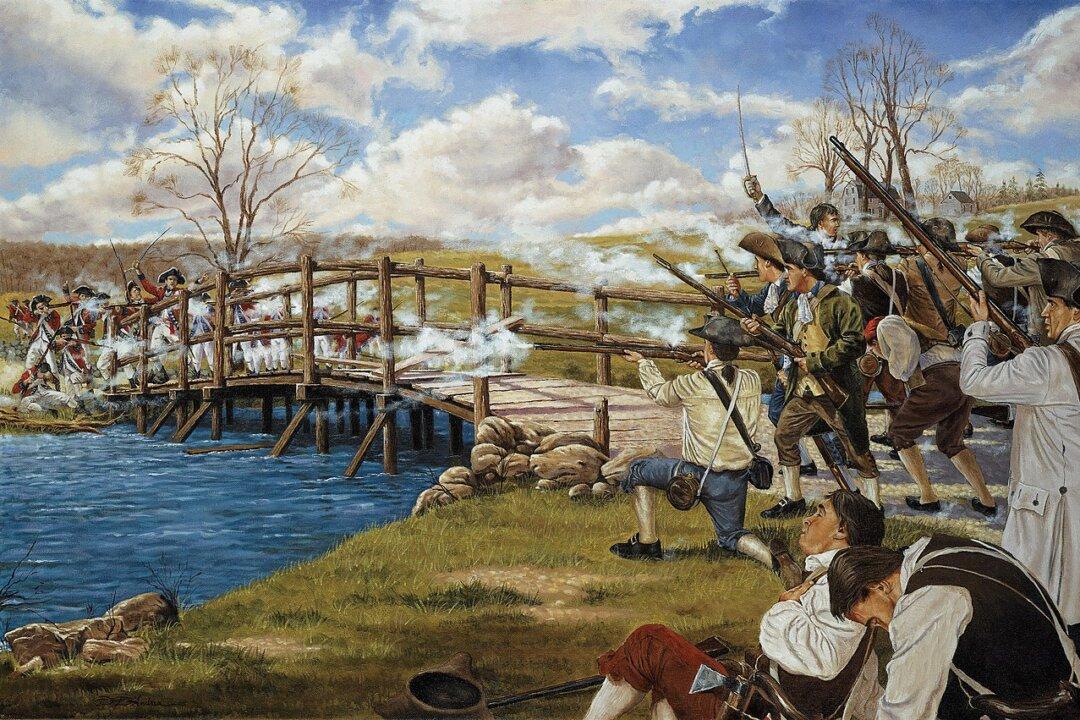Summoned by riders from Boston—William Dawes, Samuel Prescott, and the more-renowned Paul Revere—in the early morning hours of April 19, 1775, a motley crew of armed farmers and shopkeepers gathered on Lexington Green to face hundreds of British regulars marching out from Boston.
The British had come to confiscate or destroy the militia’s stores of arms and powder in nearby Concord. The 77 American colonials opposing them were intended more as a show of force than for combat, and they were under orders to disperse if a weapon was fired. To this day, no one knows who fired the first shot, but in the ensuing melee eight Americans died and nine others were wounded. One British soldier was slightly wounded.






